Karibu Kidete Village! Welcome to Kidete Village! The nerve-wracking, exciting, much-anticipated part of our CIEE program finally began last Sunday: moving to rural villages to live with homestay families for a month! Many of us have different assignments for this month; mine are conducting a needs assessment in my village, conducting interviews and focus group discussions about community needs, organizing the findings, and then constructing a mission statement and action plan for an intervention surrounding this need for the local N.G.O. to possibly implement. I will also be examining different health practices in the community and creating a health message to promote a specific health practice which I will present to the community at the end of the month, though I have yet to determine what this health practice will be. Something else I’m really excited for is to volunteer for the local N.G.O. by checking in on and spending time with the HIV/AIDS orphans they support. Many of these kids have had huge hits to their self-esteem due to 1. having the title of “orphan” and 2. feeling like burdens (and also being seen as burdens) by the families that support them. Also, not to mention, enduring the loss of their primary families. It is our goal to help them see they are a person of worth, as well as help their new families see they are a person of worth by spending genuine time with them and investing in their lives.
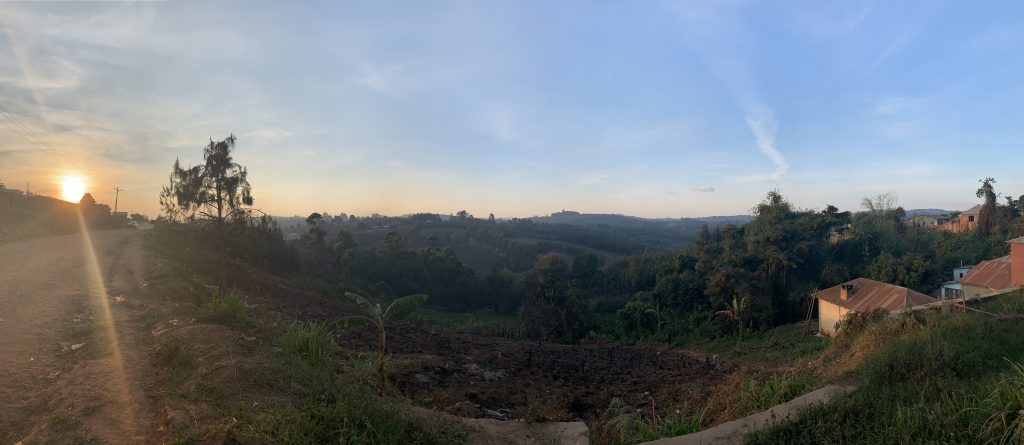
However, before we can do any of this, we need some time to settle in to our new villages as well as get to know our new families, so that’s how we spent week one. Adjusting to living a life where we cook our food outside over a fire, walk to a well with buckets to fetch our water for the day, and go to the bathroom in a squat toilet in an outhouse in the backyard has been both incredibly challenging and incredibly beautiful, and something that I’m currently struggling to collect all my thoughts on; I’ve never lived this way before. Yet, what I can collect my thoughts on are the family I’m becoming a part of, that has so graciously welcomed me into their nyumbani (home), and I’d like to introduce you to them!
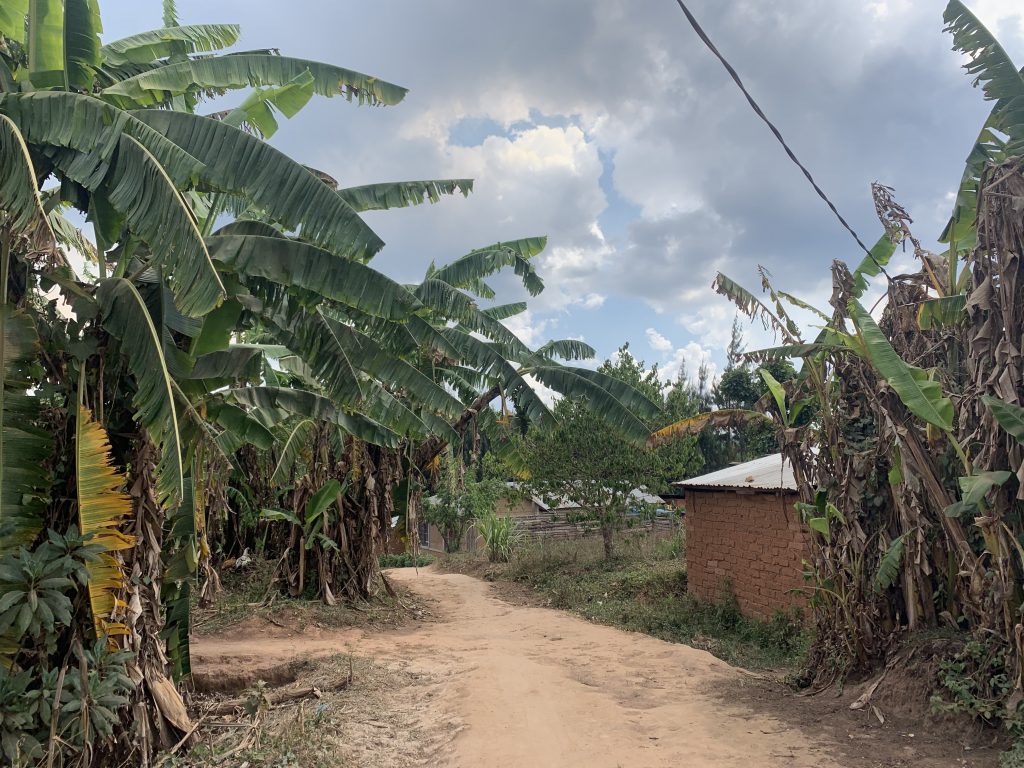
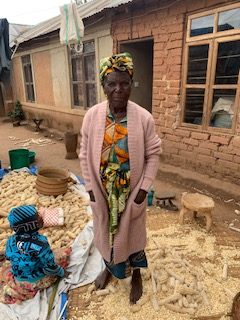
I think it’s only fair to start with Bibi (Grandma). Bibi is my Baba’s Mama and is very old! She deserves the utmost “Shikamoo”s, which is how to greet elders here. Bibi doesn’t live with us, but comes over quite often. She speaks Kijeje which is a tribal language, so I really can’t understand a word she says to me no matter how many times I ask her to slow down. Yet, Bibi and I have bonded by sorting millet and shucking corn, by me tending to her broken fingernails, by her giving me a hair wrap, and by letting her borrow my sweaters! Bibi has an incredible laugh and is such a hard worker, as you can see pictured. I love spending time with her.
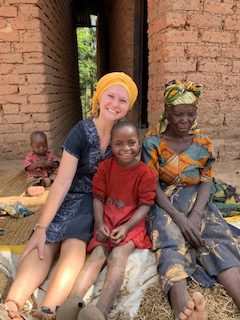
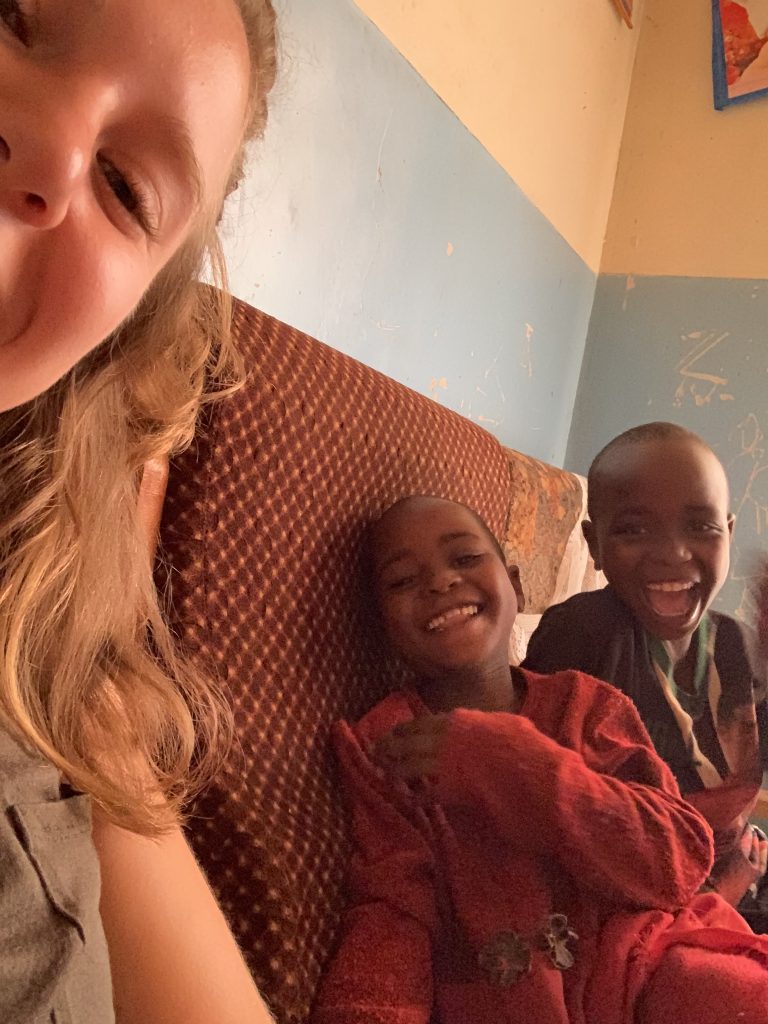
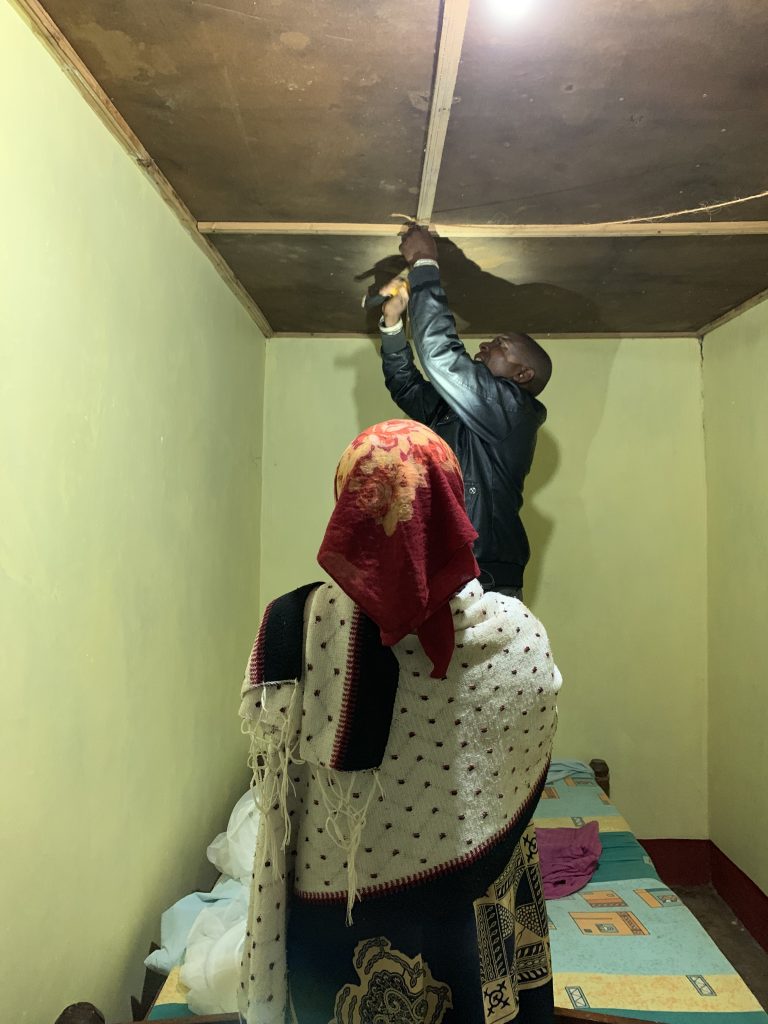
Now we have Baba (father)! My baba is a builder in the village, and plays a very active role in the community. He works for most of the day so I mostly only see him in the evenings, but here’s what I know about Baba: he runs a tight ship and really values good behavior, he LOVES his kids and goes out of his way to play with them and make them feel loved even after a long day of work, and has a heart that loves to help others. Baba is very excited about me wanting to learn more Swahili, but I must admit, he’s a pretty strict teacher! However, I really appreciate him being so dedicated in helping me.
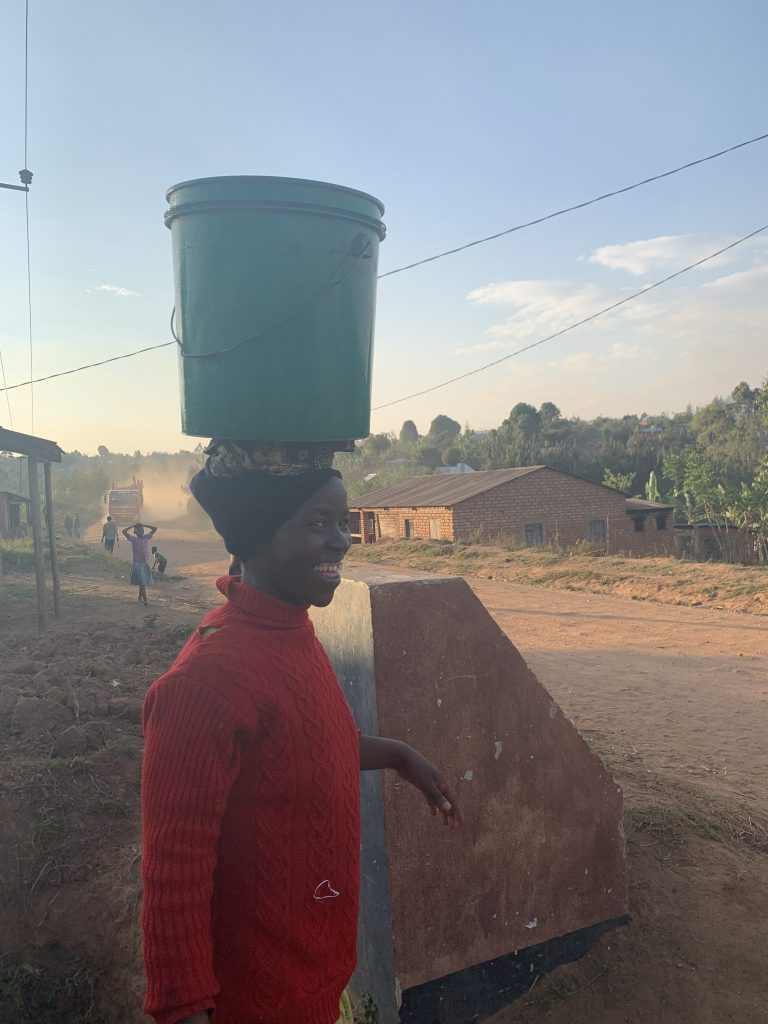
Next up is Mama! Mama is one of the most hospitable women I have ever met, which is common to Tanzanian women, but Mama is special and has made me feel like a true part of the family in such a short amount of time. The way she balances both being warm and hospitable, and also treating me like one of her own has given me space to really be myself in my new home. On my third day of being with her, Mama overfilled my plate with food and kept filling my cup with chai (tea) as she was teaching me how to cook over the fire. The next second, Mama was covering my legs with a kitenge (Tanzanian piece of fabric), told me my skirt was wide open (oops!), and that I would be in big, big trouble if I were one of her own children. By the way, she doesn’t like my nose ring. Ha! Today I was handwashing my clothes and she was teaching me the right way to scrub them, yet I kept messing it up. She just said, “no worries, you are my daughter,” with the biggest smile. She also gives me chores to do like washing dishes, sweeping our yard, and watching my baby brother, and tells me how much she appreciates my hard work, the whole time. However, Mama is not ALL hard work- she dances while folding laundry, swings off of tree branches, and sits with me in the shade under fruit trees while we have pumzika (rest) time, and even lets me accidentally fall asleep and doesn’t wake me up when it’s time to get back to work. She cooks three meals for her family every day, cares for four (and now five) kids aged one to twenty-one, and also runs a small farm from our backyard. After only one week of knowing Mama, I already hope I can be half as dedicated, loving, and humorous by the time I’m her age.
Sibling time! I grew up as an only child so knowing we were moving in with host families, I had just a little inkling I might have a bunch of siblings since I didn’t growing up and God is known to be funny… God was indeed funny. I have four younger siblings, three kaka’s (brothers) and one dada (sister), and while its often fugo sana (a lot of chaos), I am so grateful for them.
First we have Gwaki, my sixteen-year-old brother, who I actually have not met yet! He is currently taking his final exams for secondary school (high school), and Tanzanian students stay at school for a couple to a few weeks while they do this. We are praying he passes and graduates! My parents are so proud of him, and I can’t wait to eventually meet him when he comes back home.
Next we have Zachariah, or Zacha, my nine-year-old brother! Zacha is pretty quiet, but turn on some Tanzanian pop music, and you’ll see a whole new side of him; he’s got some great dance moves. He’s kind of a tough egg to crack. One time I jumped out from around a corner trying to scare my little sister, but it turned out to be Zacha and not her, and I think this embarrassing and funny moment helped break the ice between us. He gave me his kindergarten Swahili vocab book to learn from (is my Swahili really that bad?), and sat with me while I read vocab words in Swahili and he read them in English. I think our dual-learning is also helping us to bond.
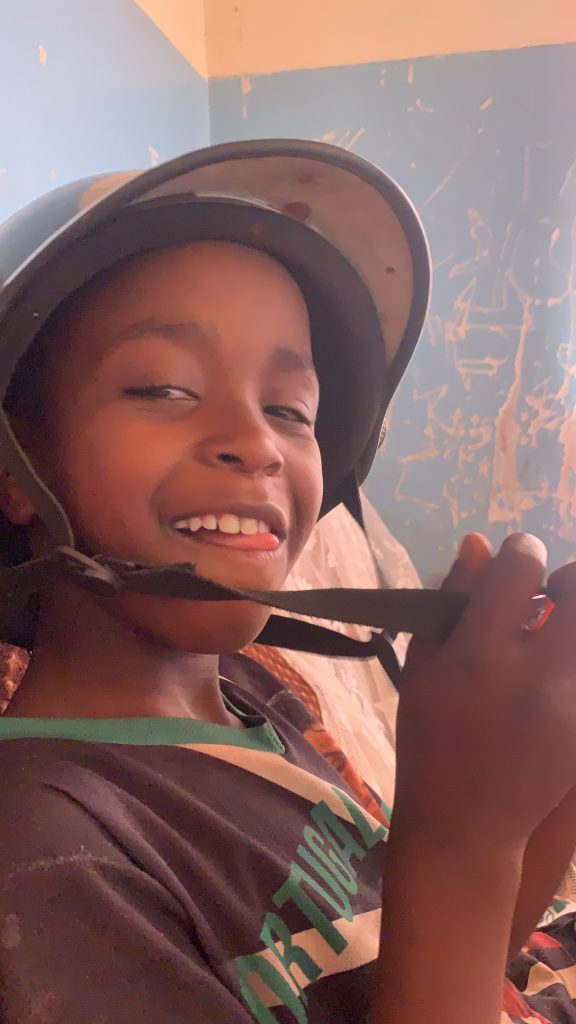
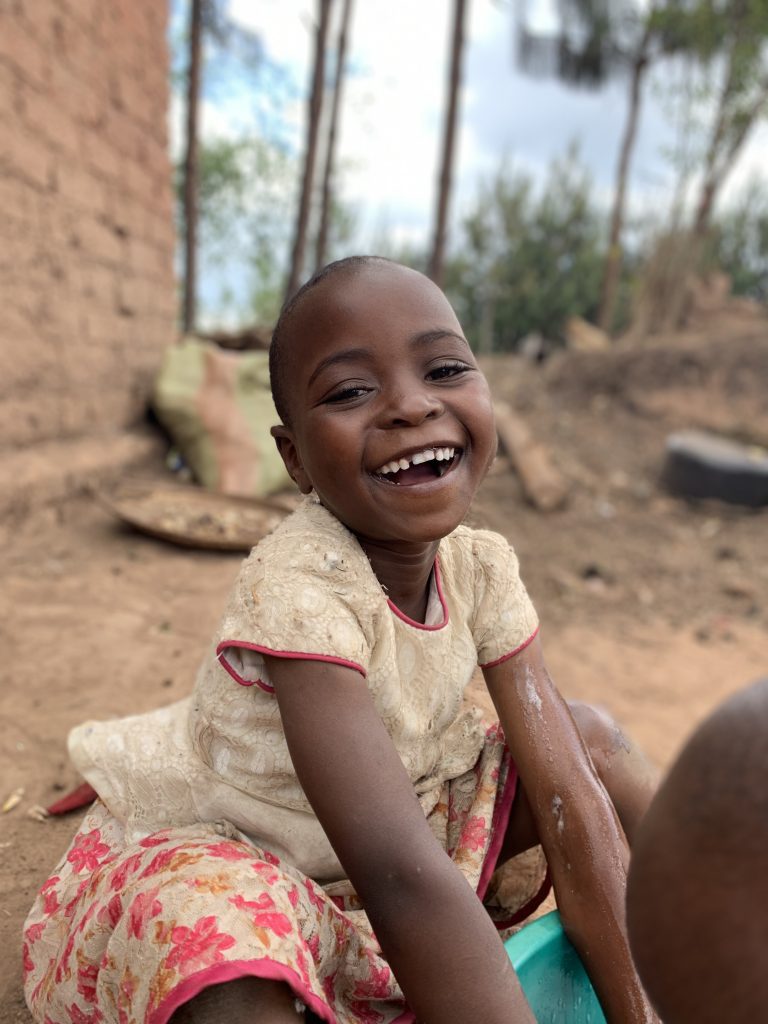
Now we have Nice, who is my seven-year-old sister. The first night I moved in, Nice sat next to me on the couch, shyly stared at me, and just giggled hysterically when I said anything to her. Somehow, I immediately knew we would be good friends, and this has proven to be true. Nice is so kind, hard-working, playful, joyful, and the best big sister to her baby brother, as well as the best little sister to me. Even though we can’t talk much, Nice will take any chance she gets to play with me, whether she’s teaching me how to carry buckets on my head (starting small, of course) or we’re having a tickle war. Nice’s sweet and sincere smile really makes me feel at home, and I am already so grateful to call her my dada kidogu (little sister).
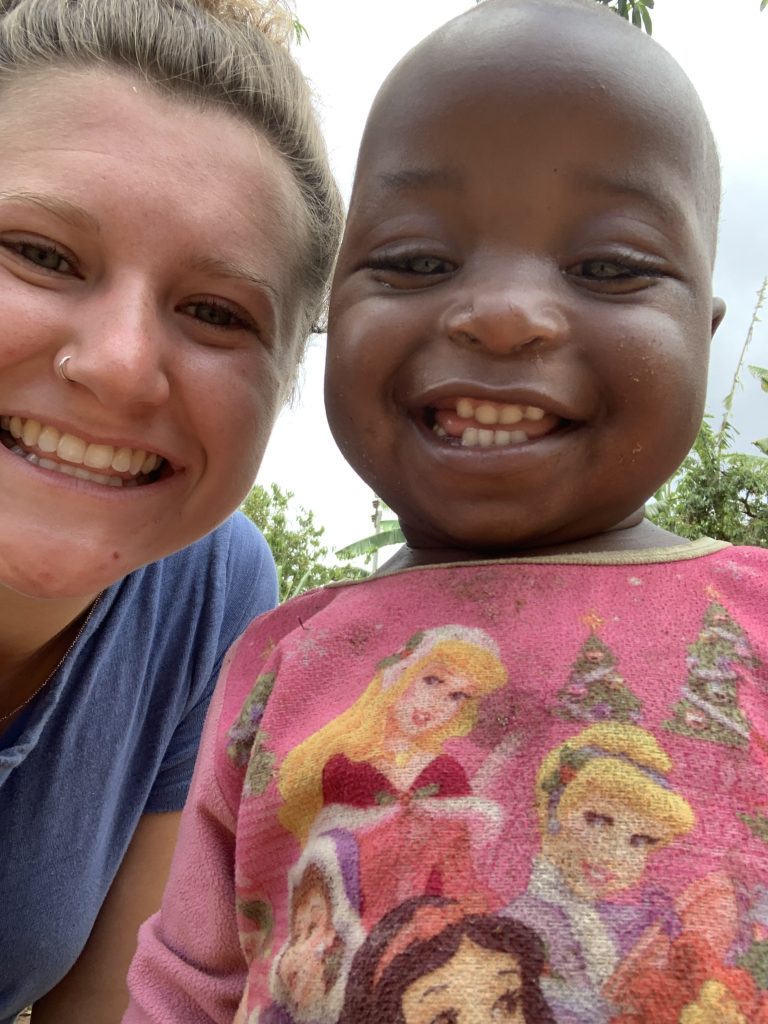
Last, but especially not least, we have Emmanuel, or Ema, my eleven-month-old baby brother. The first time I tried to hold Ema he started screaming, and then my Mama told me he’d never seen a white person before. (Yes, I am in the rural of rural Tanzania). I knew I had some work to do because I just did not want to see or hear this poor baby scream every time I looked at him. By the end of the second day and a few failed attempts, Ema finally warmed up to me and learned I wasn’t a scary monster, just a bigger, different colored human, and now we are best friends. Ema and I spend a lot of time together since during the day it’s just me, him, and Mama at home since Gwaki, Zacha, Nice, and Baba are at school and work. Ema loves to throw dirt at me, and hit me with sticks. I say, “Ema, hamna piga dada! Simama!” (“Ema, no hitting dada! Stop!) But he just laughs hysterically and coo’s with joy every time so…I really don’t mind that much. He’s a mischievous little baby, but I am grateful that chasing him around gives me something to do, and grateful for the joy and entertainment he brings to us all.
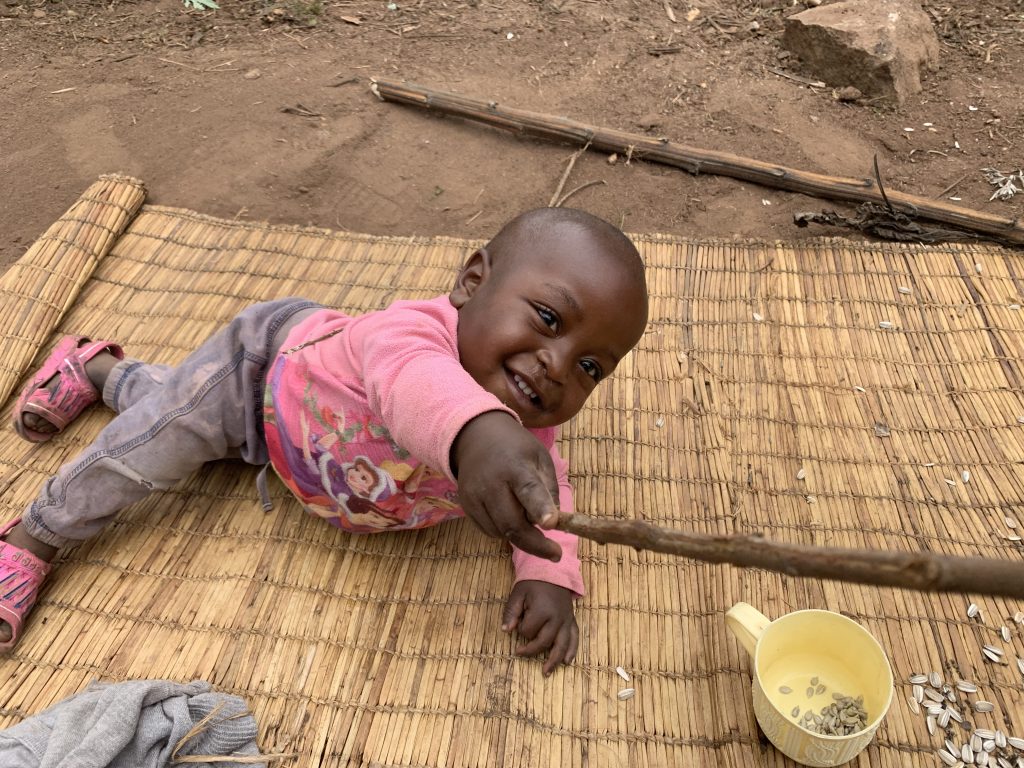
Being placed with a family so great only reminds me: God knows what he’s doing. I am grateful and excited for what the next three weeks have in store.

